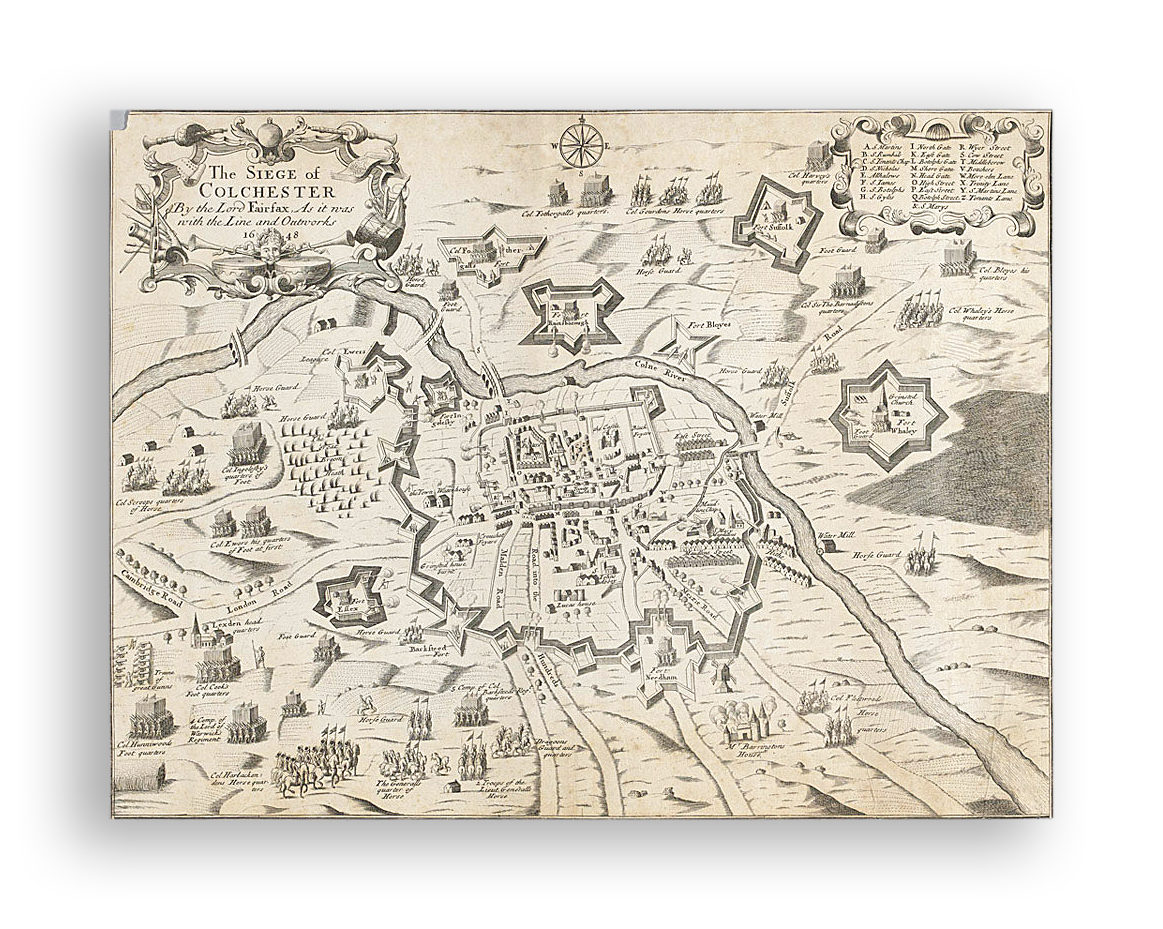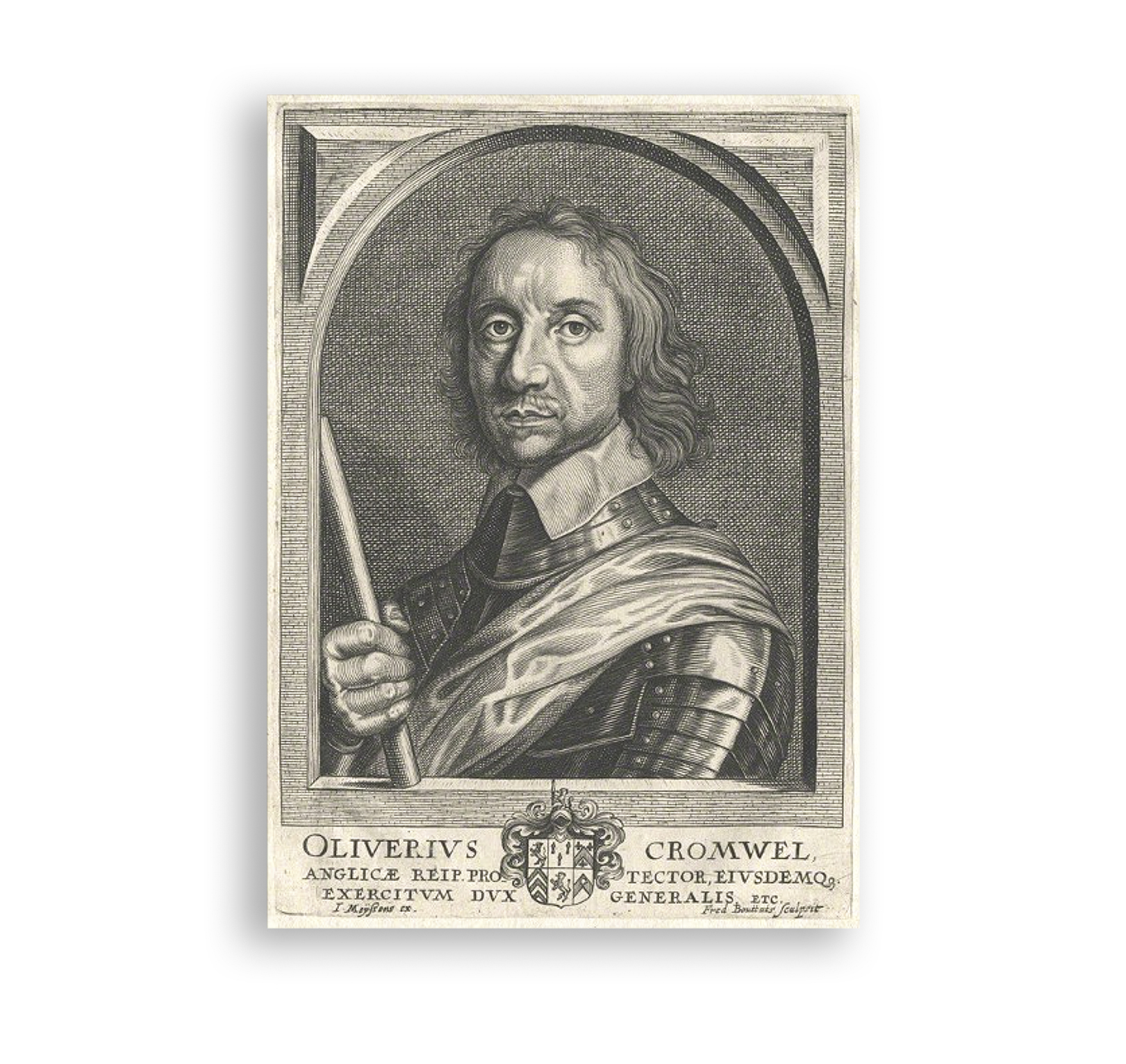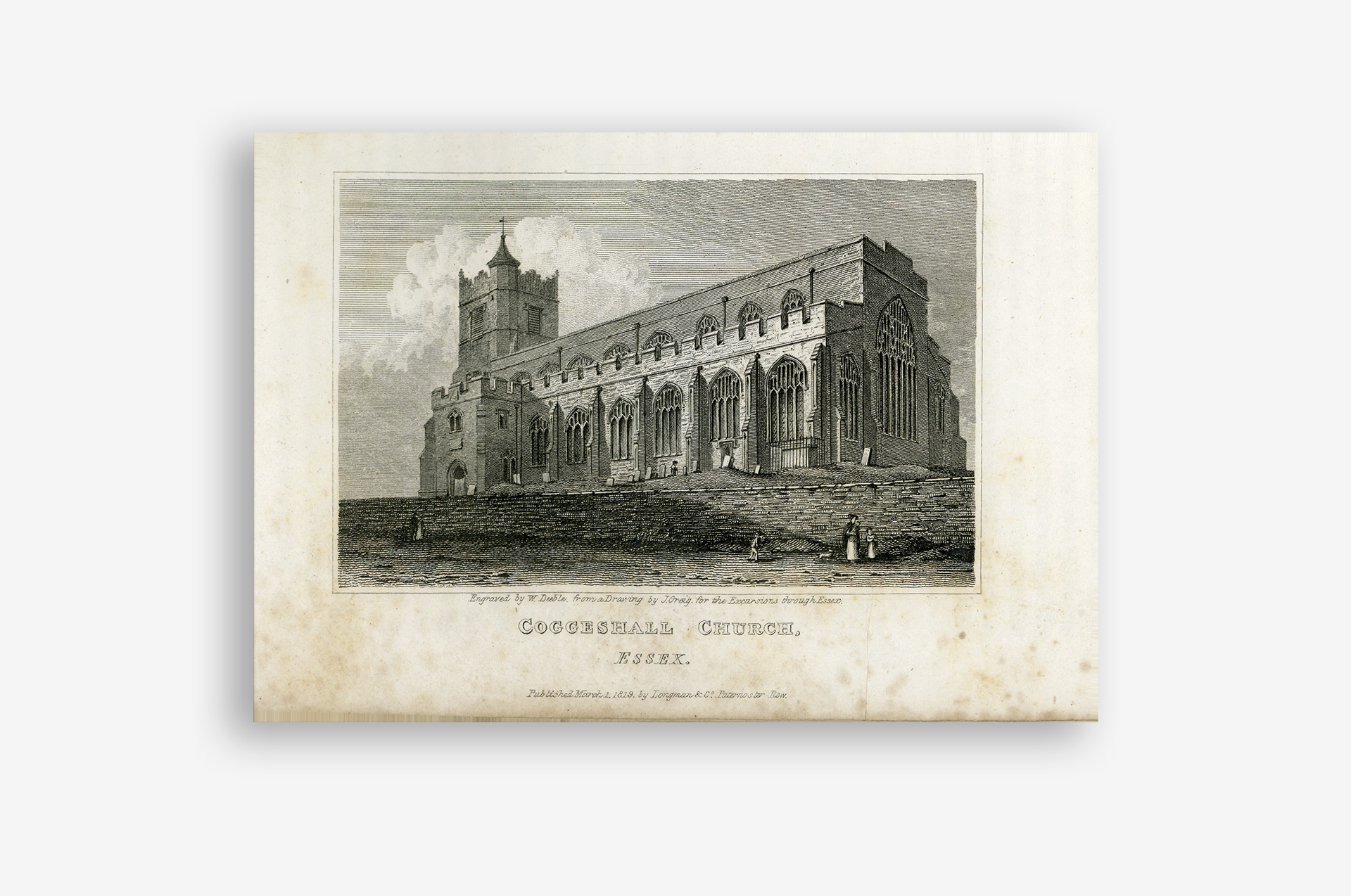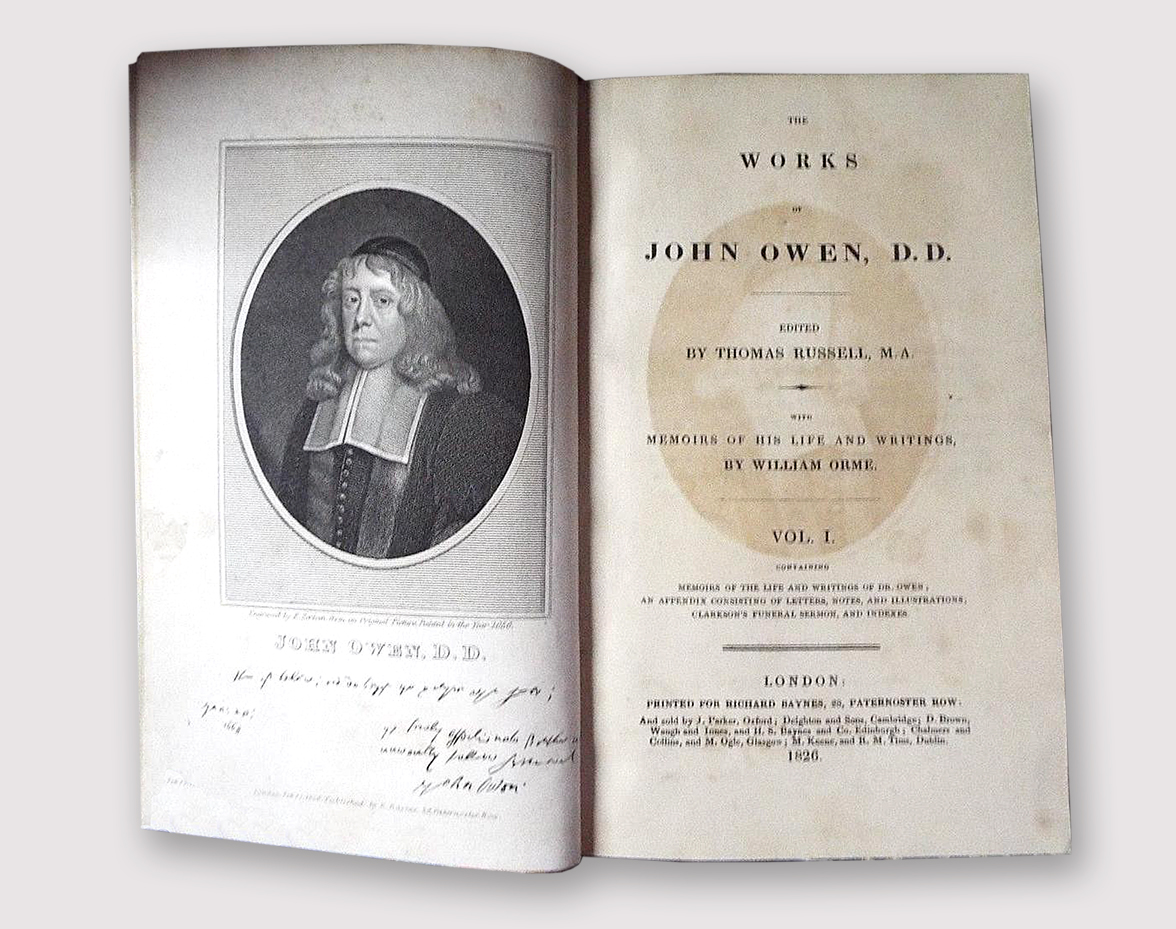John Owen

John Owen (1616-1683) was Pastor at Coggeshall (1646-1652), Chaplain to Oliver Cromwell, and perhaps the greatest theologian England has ever produced.
The execution of King Charles I on the cold morning of January 30th, 1649, had a profound impact on the course of English history. The Regicide was an unprecedented event that followed years of bloody civil war, political manoeuvring and cultural upheaval. Amongst the three preachers who addressed the Commons in Parliament the following day was the young pastor of Coggeshall, John Owen.
That the pastor of Coggeshall should preach in Parliament on such a sombre and significant occasion may seem unusual. However, it was Owen’s ministry in Coggeshall that had led him to this point.
Html Light Grey background ignore this text it is just to increase the picture size
ignore this text it is just to increase the picture size
ignore this text it is just to increase the picture size
ignore this text it is just to increase the picture size
ignore this text it is just to increase the picture size

During the siege of Colchester in 1648 General Fairfax had made Coggeshall his headquarters. Throughout the siege Owen had spent a good deal of time with the army and had made strong connections with Fairfax. Following the siege Owen also built rapport with Sir Henry Mildmay and Sir Thomas Honywood who had both been taken hostage by the Royalists retreating into Colchester. These connections were of great significance as Masham and Mildmay ‘…expressed their appreciation for his efforts by inviting him to preach a private sermon and by creating opportunities for him to preach to Parliament.’ (Gribben, p.95).
So it was that Owen was called to preach at the monthly fast day before Parliament in December. The fast day, however, was postponed due to the ongoing trial of the king until finally, after the shocking and legally questionable execution of Charles I, Owen was summoned. Owen’s sermon was ambiguous and reflected the hesitancy of his patrons towards Cromwell’s ‘cruel necessity’. He was measured and sober and almost entirely avoids speaking to the events of the previous day. His focus is theological rather than political.
Owen was summoned to preach before Parliament later in the year as well. This occasion was also to prove significant for Owen. Following his appearance in Parliament he decided to visit General Fairfax.

Html Light Grey background ignore this text it is just to increase the picture size
ignore this text it is just to increase the picture size
‘…while waiting, Cromwell and many other officers entered the room. Owen’s tall and stately figure soon caught the eye of Cromwell as the person whom he had heard preach with so much delight yesterday; and going up to him, he laid his hands upon his shoulders, and said to him with familiarity, “Sir, you are the person I must be acquainted with.” Owen modestly replied, ‘That will be much more to my advantage than yours.” To which Cromwell returned, “We shall soon see that”…'(Works 1: XLII).
Cromwell was to depart for a blood drenched campaign in Ireland and invited Owen to join him as his chaplain. Owen was reluctant to leave his two thousand strong congregation in Coggeshall and it appears that his congregation were similarly fond of him and unwilling for him to leave. Cromwell continued to press his request though and Owen joined him in Ireland and his later campaign in Scotland.
Html Light Grey background ignore this text it is just to increase the picture size
ignore this text it is just to increase the picture size
ignore this text it is just to increase the picture size
ignore this text it is just to increase the picture size
ignore this text it is just to increase the picture size

After his stint with the army Owen returned to his family and congregation in Coggeshall. The years previous had been difficult. Owen and his wife Mary had lost children, at one point three of their children died in the space of nine months. They were to go through the traumatic experience of child loss repeatedly throughout their lives with ten of their children dying in infancy and their daughter dying of consumption in her early twenties.
But in the years following his time as Cromwell’s chaplain, Owen’s ministry in Coggeshall drew to a close. In 1652 he was invited to the role of dean at Christ Church in Oxford. Oddly enough, the first he heard of it was while reading the newspaper. The following year Cromwell himself would nominate him to the Vice-Chancellorship of Oxford University and John Sams took his place as the pastor at Coggeshall.
The next decade would see Owen heavily involved in the renewal of the University after the degradation caused by the Civil War. It was also an ample opportunity for Owen to continue his written work. By 1652 he had already published some sixteen books. He would continue writing after leaving Oxford at the restoration of the monarchy in 1660. By the end of his life in 1683 he would have written and published over eight million words. Owen was prolific, publishing volumes on topics ranging from religious toleration to deep treatises on Christian doctrine. Owen’s work, while displaying his immense intelligence, was consistently grounded in real life experience. He was not primarily concerned with academic accolades but in offering a defence and proclamation of the hope that he held to as a Christian. While reading Owen is a challenge even by 17th century standards, his warmth, concern and sincere faith in Jesus Christ are on display in abundance.
Indeed, it is his theological works, rather than his political achievements, that have proved his enduring legacy. So much so that one recent commentator wrote that, ‘John [Owen], English theologian, was without doubt not only the greatest theologian of the English Puritan movement but also one of the greatest European Reformed theologians of his day, and quite possibly possessed the finest theological mind that England ever produced. ‘
—Carl R. Trueman

Html Light Grey background ignore this text it is just to increase the picture size
ignore this text it is just to increase the picture size
His complete works in 24 volumes are still in print (with a new critical edition on the way) and his life and theology have been the subject of several recent biographies and academic monographs. He continues to have a popular following, especially among Reformed Christians. Not only does he have a website dedicated to his life and work (John Owen) but you can also get t-shirts with his portrait on. Not bad for a pastor from the small town of Coggeshall.
You can find out more about John Owen in the following resources:
• Crawford Gribben, An Introduction to John Owen: A Christian Vision for Every Stage of Life, Crossway (2020)
• Crawford Gribben, John Owen and English Puritanism: Experiences of Defeat, Oxford University Press (2015)
• Carl R. Trueman, John Owen: Reformed Catholic, Renaissance Man, Routledge (2007).
• Matthew Barrett and Michael A. G. Haykin, Owen on the Christian Life: Living for the Glory of God in Christ, Crossway (2015).
• A number of Owen’s works can be found for free online here: Author info: John Owen – Christian Classics Ethereal Library (ccel.org)
Written for Coggeshall Museum by Tim Stanyon.
From the Coggeshall Parish Records
In 1644, whilst he was the vicar of nearby Forham, John Owen married Mary Rooke. Moving to Coggeshall two years later, it was here that three of their daughters were baptised; Mary, on 18th July 1647, Elizabeth on 10th February 1649 and Mary 18th February 1649. One daughter, Mary was buried here on 25th July 1647 – just seven days after her baptism. As Tim mentioned above, of John and Mary’s eleven children, ten died in infancy.